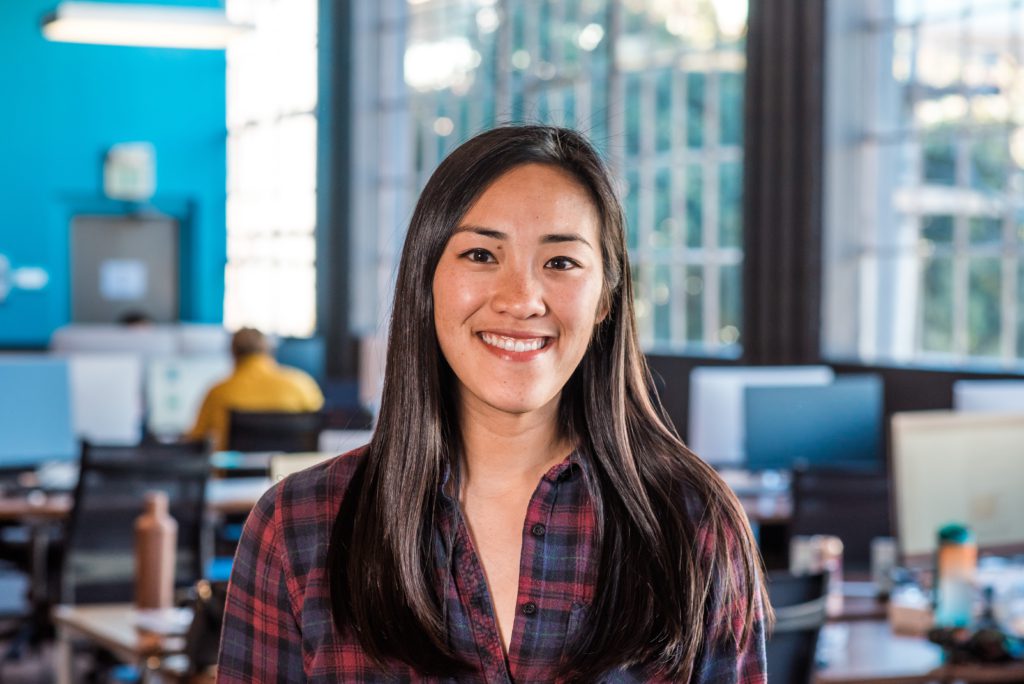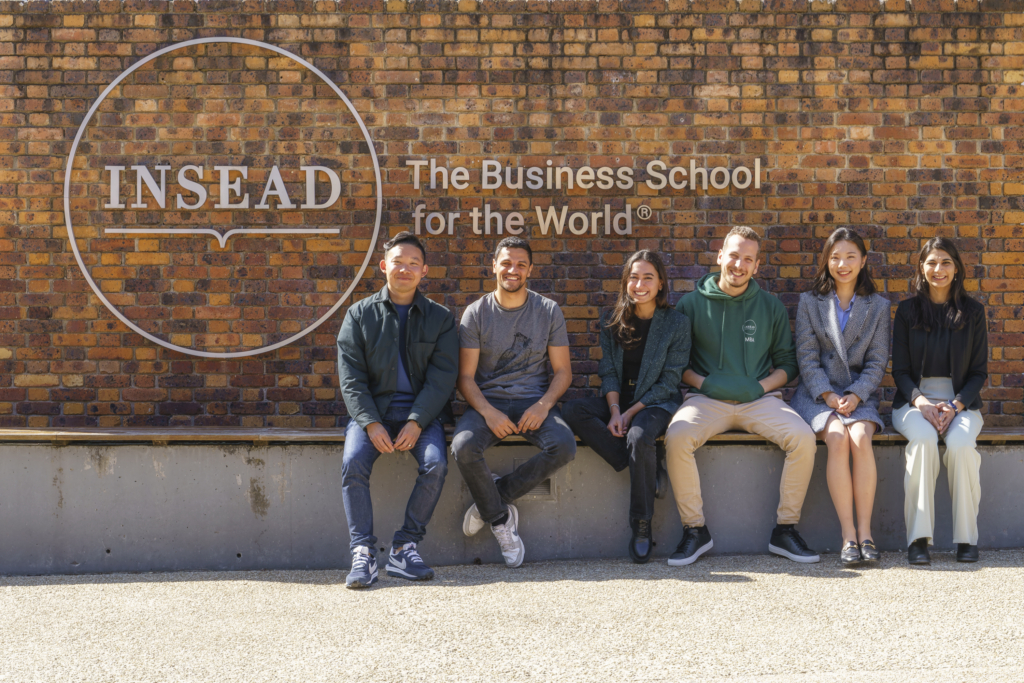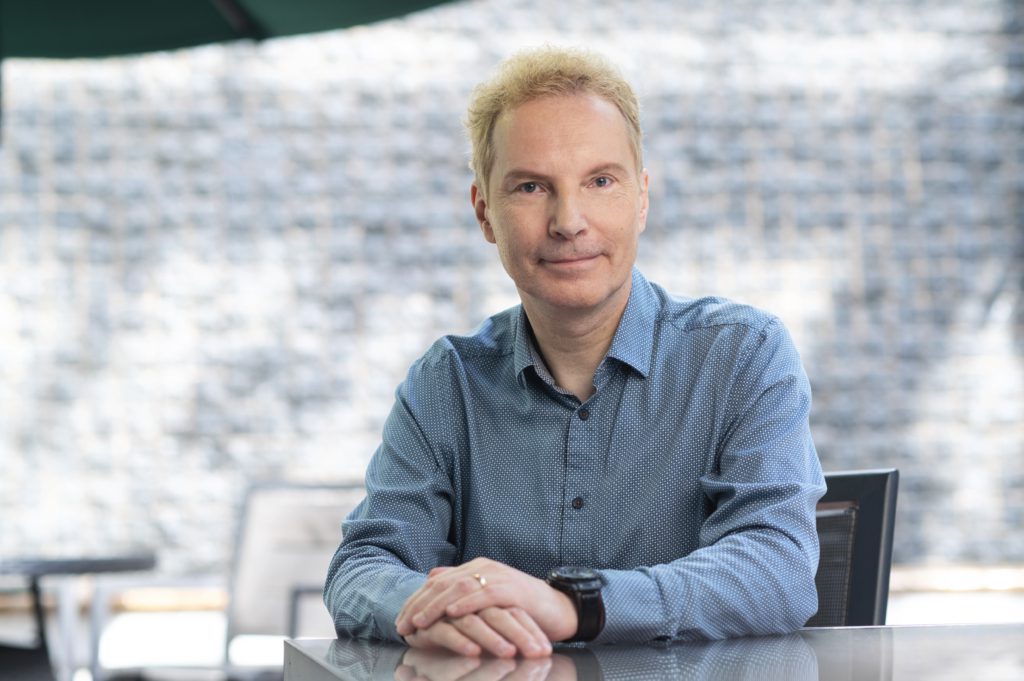
Lucia Huang, Stanford GSB MBA ’20, is co-founder of Osmind, one of 25 startups founded or co-founded by women. Courtesy photo
25 WOMEN FOUNDERS
The number of women-founded companies fell slightly, 25 in 2023 compared to 26 in 2022. Together, the companies raised $1.42 billion.
The three highest-funded startups founded by women include:
- Ajaib (No. 7) founded by Yada Piyajomkwan and her Stanford GSB classmate Anderson Sumarli. The zero-commission investing platform for millennial investors in Indonesia has raised $245 million to date.
- Brightline (No. 9), founded by Columbia MBAs Giovanni Colella and Naomi Allen, has raised $212 million since 2019. The medtech company provides behavioral health care for children and their families.
- Stride Funding (No. 14) founded by Harvard alum Tess Michaels has raised $150.7 million to date. The company debuted in our list last year at No. 31, having raised $45.7 million. It raised $105 million in its latest debt financing round for a total of $150.7 million to date. The company offers more flexible payment options for expensive MBA programs through income share agreements.
Daniela Izquierdo (MBA ‘19) started thinking through a tech-driven business model in a course during her last semester at Harvard Business School: Challenges and Opportunities in the Restaurant Industry. Foodology, a foodtech company she founded with classmate Juan Azuero, provides standalone “cloud” kitchens without the capital- and labor-intensive dining areas along with a commerce platform for food delivery businesses. It has locations in Colombia, Mexico, Brazil, and Peru, according to this HBS alumni profile.
The pair, both from Bogota, Columbia, started their company in 2019 with $500,000 raised from family and friends and won $75,000 through the alumni track of HBS’ New Venture Competition in 2020. They’ve raised $86.5 million to date, and their company lands at No. 27 on this year’s list.
“The industry is hard. You need tons of money to get started. Almost all restaurants go broke after the first year. And very few people get beyond one or two locations,” Izquierdo tells HBS.
“We run A/B testing around price, around pictures, around menu descriptions. We track what our best sellers are and what our worst offenders are, and we’re constantly innovating with our menus and our brands.”

INSEAD in France has 10 startups on this year’s list, including the top two highest funded ventures. Altogether, the 10 startups raised $2.57 billion, the highest amount of any other school. Courtesy photo
INSEAD’S SECRET ENTREPRENEURIAL SAUCE
If it were easy to explain, the “secret sauce” for INSEAD’s entrepreneurial success wouldn’t be so secret, says Henrich R. Greve, professor of entrepreneurship and academic director of the Rudolf and Valeria Maag INSEAD Centre for Entrepreneurship.
He can, however, highlight a few of the main ingredients.
Diversity is a big one. INSEAD MBAs come from all over the world and have a broad range of entrepreneurial interests. The business school, in turn, has built a large, diverse, and customizable set of electives to serve varying interests.
Expertise and experience are others. One fifth of INSEAD MBAs take the entrepreneurial starting point course, New Business Ventures – a course INSEAD faculty has deep experience in teaching. The high volume of students also has given faculty insights on how to improve and update the content. Further, more than 160 Entrepreneurs in Residence coach students on how to move forward with an entrepreneurial venture.
“We do not think that all the useful knowledge comes from our faculty members and is delivered in the classroom,” Greve tells P&Q. “We supplement it with direct knowledge transfer and consultation with entrepreneurs, most of them alumni, who share their experiences with MBAs and give them advice. This combination of professors and entrepreneurs is very powerful.”
Finally, there is scalability, which INSEAD highlights as both a goal for ventures and as a set of skills its program can provide.

INSEAD’s Henrich R. Greve: ‘We do not think that all the useful knowledge comes from our faculty members and is delivered in the classroom. We supplement it with direct knowledge transfer and consultation with entrepreneurs, most of them alumni, who share their experiences with MBAs and give them advice. This combination of professors and entrepreneurs is very powerful.’ Courtesy photo
“It is not the case that entrepreneurship is mainly about new firm formation. It is easy to start firms, and even financing new ventures is easier than people think,” Greve says.
“The hard part is survival and scaling. The scaling potential and scaling process is an important feature in our program. It is included in courses ranging from our introduction in new venture founding to our course in corporate entrepreneurship. Indeed, the importance of scaling goes all the way to being a criterion in our Venture Competition.”
EDUCATING THE NEXT CROP OF STARTUP FOUNDERS
At the Rudolf and Valeria Maag INSEAD Centre for Entrepreneurship (ICE), students can take advantage of start-up boot camps, the flagship INSEAD Venture Competition which has been offered for 20-plus years, the experience of veteran entrepreneurs, and the INSEAD LaunchPad – the first alumni startup accelerator located inside the world’s largest startup campus, STATION F in Paris.
In line with INSEAD’s ethos Business as a Force for Good, INSEAD founders are keen to attack the most urgent issues facing society and the economy, Greve says.
Climate change has become a threat no economy can ignore. Europe is living through a devastating war. AI and smart computing will change our lives in ways we can’t yet even imagine. All of these are also arenas for entrepreneurship.
In each INSEAD MBA cohort, students are developing startups that address the UN Sustainable Development Goals through innovative and disruptive solutions, Greve notes, and offers a few examples from new graduates:
- Pronoe is a CO2 removal company focused on restoring the ocean’s natural ability to capture and permanently store CO2 from the air, in a sustainable, scalable and asset-light manner.
- Good Tôm (translated to “good shrimp” in Vietnamese) is an aquaculture start-up aiming to change how farming is done across Southeast Asia by empowering farmers to be more efficient, sustainable, and profitable.
- Orica Chem focuses on eco-friendly waste gas and wastewater treatment systems, helping companies go greener and be more sustainable.
“We see less of many ‘traditional’ types of ventures these days because our MBAs recognize that these are no longer the greatest opportunity available. We see more energy efficiency and natural resource preservation because enterprises in that area can gain central roles in the economy,” he says.
“And of course, diversity is still our strength, so some of our future top listed MBA startups will be in areas that I currently cannot identify.”
You can see the full list of 2023’s highest funded MBA startups in the pages that follow.





Questions about this article? Email us or leave a comment below.